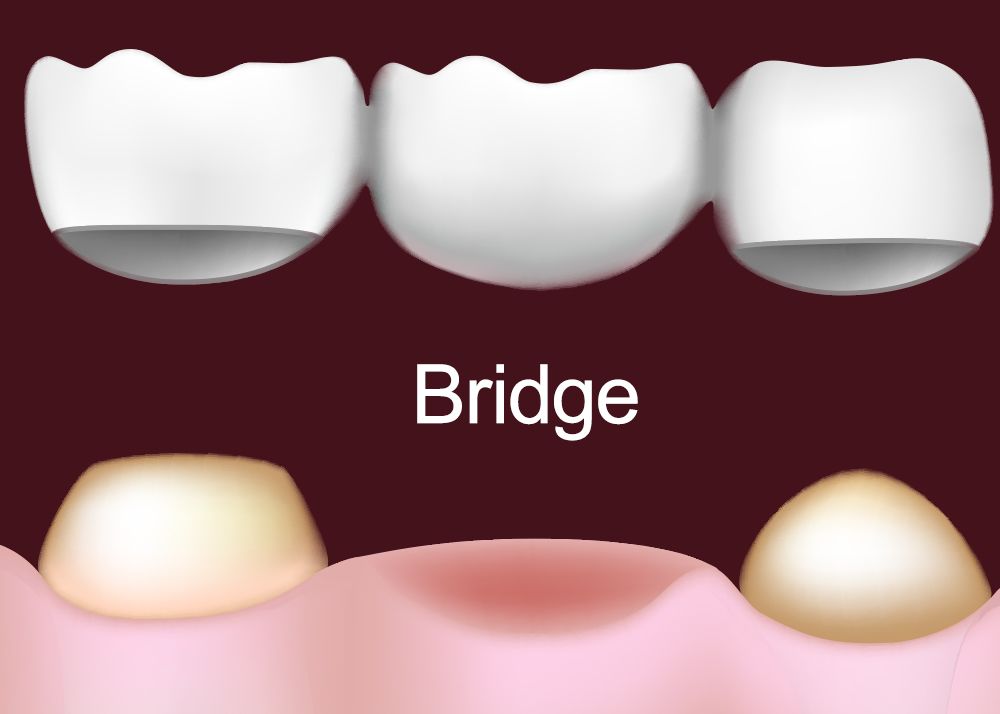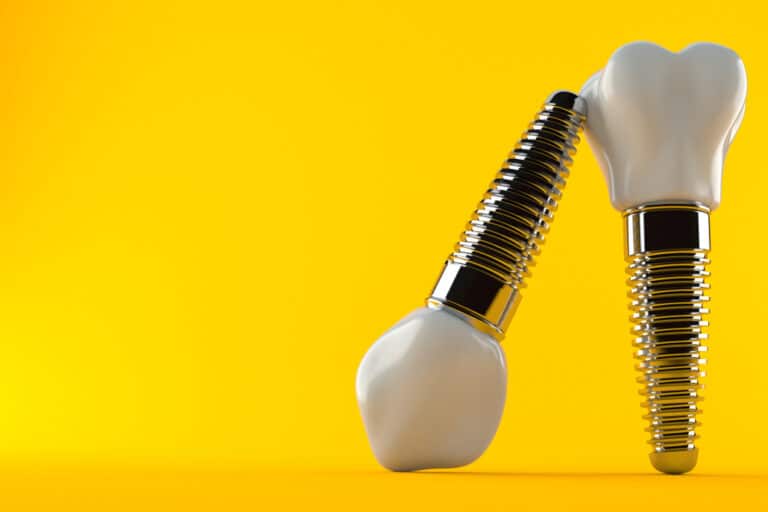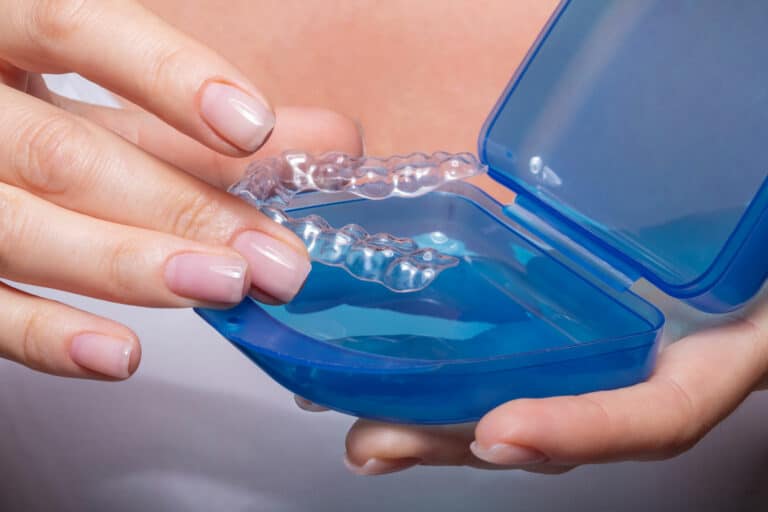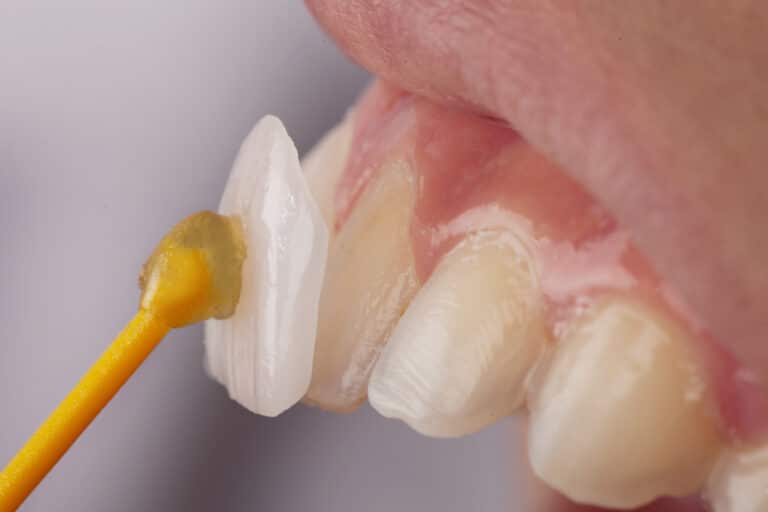Most people take great care to protect and preserve their teeth. Unfortunately, teeth weaken with age, and adult tooth loss is not uncommon.
Two effective tooth loss treatments offered at Astoria Dental Group are dental bridges and dental implants. Dental implants and dental bridges are fixed restorations that address the loss of one or more teeth. When considering a dental bridge vs. dental implant, individuals in the Queens, NY, Long Island, and NYC, area can work with our dental team to determine which treatment is better suited to their unique needs.
What Is a Dental Bridge?
A dental bridge is a prosthetic piece that is fabricated to resemble a single tooth or a small set of teeth (up to three teeth). The prosthetic sits between a person’s natural teeth to fill in gaps left by tooth loss. Traditional dental bridges are attached to a dental crown on either side. The dental crowns are fitted to the two teeth immediately adjacent to the area of tooth loss, to hold the bridge in place.
Dental Bridge Procedure
Dental bridge treatment can generally be completed in two dental appointments. At the first dental appointment the teeth that will secure the dental bridge are reshaped to accommodate the placement of dental crowns. Impressions are then taken to ensure that the dental bridge will fit comfortably once in place. Finally, a temporary bridge is placed. A few weeks later, when the permanent bridge is complete, patients return for their second appointment. At this time the permanent bridge and the adjacent dental crowns are placed.
Benefits of a Dental Bridge
Like other dental restorations, a dental bridge restores oral functions and enhances the beauty of the smile. However, the benefits that set a dental bridge apart from a dental implant are the ease, speed, and cost of treatment. Dental bridge treatment is minimally invasive and usually complete within just two to four weeks. Since no surgical procedures are required, and treatment is complete after two dental appointments, the cost of treatment is much lower than that of dental implants.
What Is a Dental Implant?
A dental implant is a small titanium screw that is placed into the jaw, where it fuses with the bone and ultimately acts as a replacement for missing tooth roots. Dental implants connect to small metal posts called abutments. Abutments protrude from the gumline where they are bonded to a dental restoration. Dental implants can act as anchors for dental crowns, dental bridges, or fixed dentures.
Dental Implant Procedure
Dental implant treatment involves several stages, which take place over the span of four to six months. At the start of treatment implants are placed via an oral surgery procedure. As patients heal from this stage of treatment implants are meant to fuse with bone tissues so they become a permanent part of the jaw. After this process is complete, patients return for metal abutment placement. During the abutment step, small incisions are made in the gums and the posts are attached to implants. Again patients are given time to recover from treatment. Finally, to complete dental implant treatment, the restorations are bonded to the abutments.
Dental Implant Benefits
Dental implant treatment is complex and costly, but many patients prefer this tooth loss treatment over any other, because of the many benefits it provides. Dental implants are more durable and secure than any other dental restoration. They look, feel, and function just like the natural teeth, making them comfortable and easy to care for. Dental implants are also the only tooth loss treatment that replaces the roots of a missing tooth, which is vital to the prevention of bone loss.
Implant-supported Bridges
For individuals who have lost a small set of teeth from the same area of the mouth, an implant-supported bridge offers the best of dental bridge and dental implant treatment. Our dental team is happy to help patients consider whether this treatment option is right for them.
Contact Us
To learn more about the tooth loss treatments offered at Astoria Dental Group, send us a message online at your earliest convenience, or call (718) 215-0510 and schedule an appointment.




